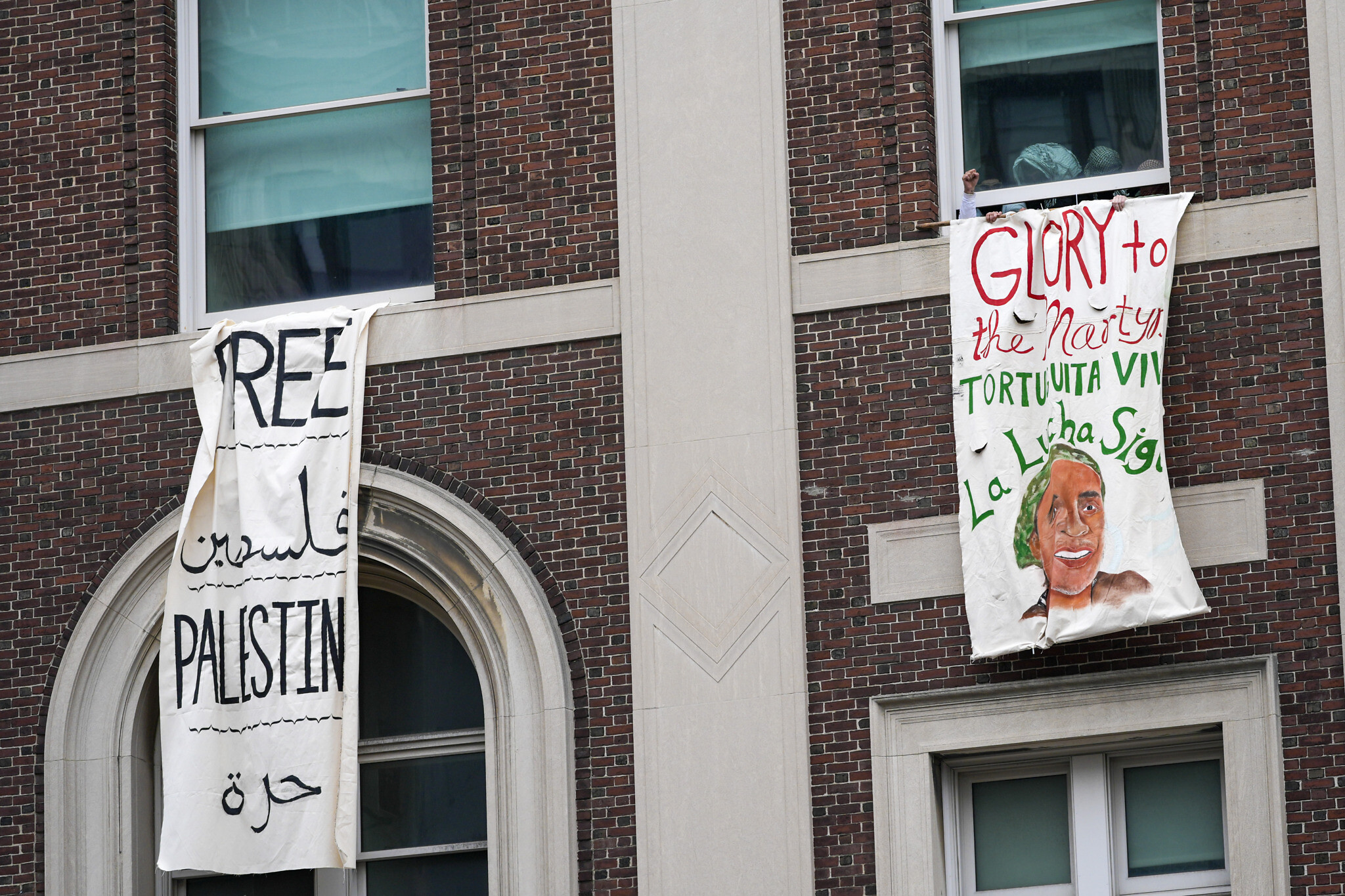



Columbia University on Monday canceled its university-wide commencement ceremony scheduled for May 15 but will keep its smaller, school-based events after weeks of pro-Palestinian and anti-Israel protests roiled the Ivy League school.
“We have decided to make the centerpiece of our commencement activities our Class Days and school-level ceremonies, where students are honored individually alongside their peers, rather than the University-wide ceremony that is scheduled for May 15,” Columbia said in a statement, calling the past few weeks “incredibly difficult for our community.”
The school said it had consulted with student leaders in deciding how to handle graduation. The majority of the ceremonies, which had been set to take place on the Morningside Heights campus where most of the protests have taken place, will be moved to the university’s main athletic complex, the statement said.
“Our students emphasized that these smaller-scale, school-based celebrations are most meaningful to them and their families,” officials said. “They are eager to cross the stage to applause and family pride and hear from their school’s invited guest speakers.”
The protests at Columbia, which drew national attention, have inspired similar demonstrations at dozens of universities around the US. Students have called for a ceasefire in Gaza and have demanded their schools divest from companies with ties to Israel.
New York City police cleared a Columbia campus building last week that had been barricaded by pro-Palestinian protesters, arresting more than 100 people and dismantling an encampment that was cleared for the second time in as many weeks.
The university had attempted to negotiate with the protesters in talks that failed to yield results. At the conclusion of the talks, Columbia’s president Minouche Shafik made a statement offering to compromise with the protest groups and asking them to clear out voluntarily until after exams and commencement so as to allow the semester to conclude as planned. The demonstrations, however, continued.
While the organizers claim their protests are peaceful, participants have been heard calling for an intifada, a term used to refer to two past massive waves of terrorist attacks in Israel, and “another 10,000 October 7” attacks on Israel like the one that sparked the war in Gaza in which Hamas terrorists murdered some 1,200 people and took 252 hostages, among other anti-Israel slogans.
Last week one of the protest leaders, Khymani James, was suspended after a January video resurfaced in which he said repeatedly that Zionists “don’t deserve to live” and should be killed, adding that people should be grateful that he wasn’t “just going out and murdering Zionists.”
Following his suspension, James issued an apology in which he said he “misspoke.”
The atmosphere at the university led many Jewish and Israeli students to feel unsafe on campus, with classes being moved online so that they could continue participating in their courses without having to come to campus.

